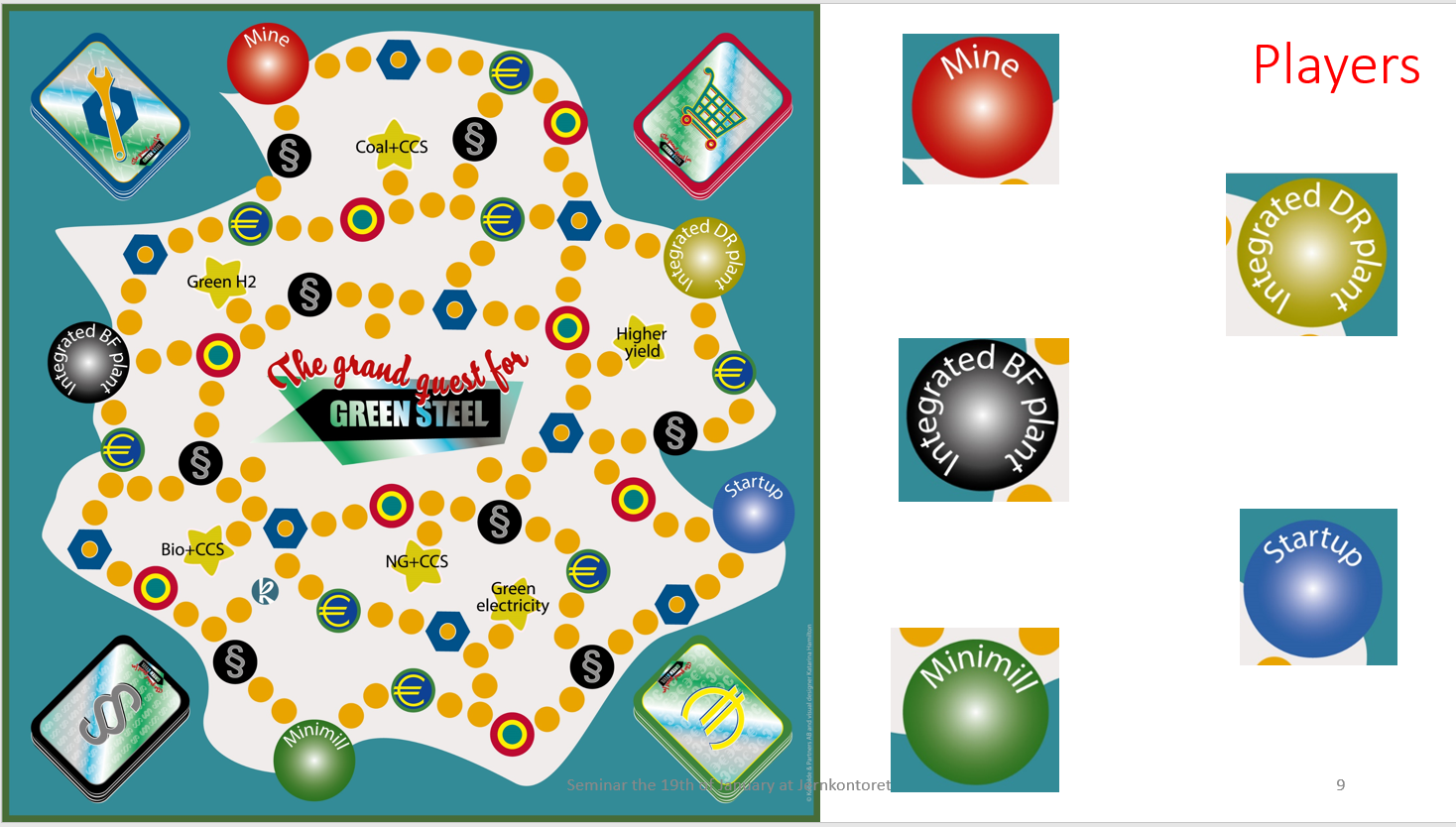”Standardisation needs for the steel industry's climate transition – near zero steel”
On 19th January, Jernkontoret hosted a seminar about the Vinnova-funded investigation into standardization needs linked to the steel industry's climate transition, so-called "near zero steel" – a project that is engaging but also technically challenging and complex.

Karin Östman, project leader and senior environment advisor at Jernkontoret, and Rutger Gyllenram, Founder and CEO at Kobolde & Partners, were two of the speakers at the seminar ”Standardisation needs for the steel industry's climate transition – near zero steel” at Jernkontoret in Stockholm on 19th January.
The investigation of standardization needs linked to the steel industry's climate transition, which has been ongoing since April last year and is financed by Vinnova, is based on the need for standardization and harmonization to support the transition to fossil-free production that the Swedish steel industry is currently implementing. The final report will be submitted to Vinnova before the end of February and will be distributed to various stakeholders to spread and share the knowledge gathered in the project.
– Standardization is largely technical and complex, while the need for a common definition of "near zero steel" for the moment is urgent. Existing standardized methods and other initiatives are interesting, but the results for different products and companies differ depending on which method is used, which becomes problematic, says Karin Östman, project leader and senior environment advisor at Jernkontoret.
The seminar on 19th January was organized by the project group The purpose was to present the project, the outline conclusions and create a forum for dialogue. The active participation of the audience led to very good discussions. Customers, researchers, steel representatives as well as representatives from the Swedish Institute for Standards and authorities participated and many initiated questions were raised.
– There was clearly a great commitment to how standards, methods and criteria can be used to support the transition to a steel production with very low CO2-emissions. How it can affect the market situation for various steel products was also a hot topic, says Karin Östman.
 Picture describing the ”Game of the Green Steel” which was presented during the seminar ”Standardization needs for the steel industry's climate transition – near zero steel” which took place at Jernkontoret in Stockholm on 19th January.
Picture describing the ”Game of the Green Steel” which was presented during the seminar ”Standardization needs for the steel industry's climate transition – near zero steel” which took place at Jernkontoret in Stockholm on 19th January.
Program the 19th of Januari 2023
- Introduction and background to the project. Annika Roos, Managing Director and Gert Nilson, Technical Director, Jernkontoret
- Presentation of the project. Karin Östman, senior environment advisor Jernkontoret, with focus on aim and execution of the project and stakeholder analysis.
- Assessment of existing standards. Rutger Gyllenram, Founder and CEO Kobolde & Partners
- Assessment of existing initiatives. Wenjing Wei, COO/Researcher Kobolde & Partners
- Illustrative examples. Rutger Gyllenram and Wenjing Wei.
- "Game of the Green Steel" and SWOT analysis with the audience. Rutger Gyllenram
- Summary of the project. Karin Östman and Rutger Gyllenram.
- Panel discussion 1. Customers and end users. How is the climate impact of products valued and how does it affect the end customers' choices? Participants: Rickard Alm, Head of LCA Program Volvo Construction Equipment, Åsa Lidén, Material and Innovation Area Manager IKEA and Katarina Graffman, Affliated Researcher Stockholm University. Moderated by Gert Nilson.
- Panel discussion 2. Iron and steel companies. How do iron and steel companies report and communicate the carbon footprint of their products? What affects the result and which methods exist and are suitable for assessing what is a steel with a low climate impact? Participants: Jonas Larsson, Director Environmental Affairs SSAB, Katarina Kangert, Head of Sustainability and Safety Ovako and Hilmar Vidarsson, Group Sustainable Products and Processes Höganäs. Moderated by Gert Nilson.
To view the seminar, visit Jernkontorets YouTube-kanal. Also read more about the seminar and the research project at Jernkontorets webbplats.
Presentations from the seminar:
Karin Östman, stakeholder analysis
Rutger Gyllenram, Assessment of existing standards
Wenjing Wei, Assessment of Initiatives
Wenjing Wei, Illustrative examples


